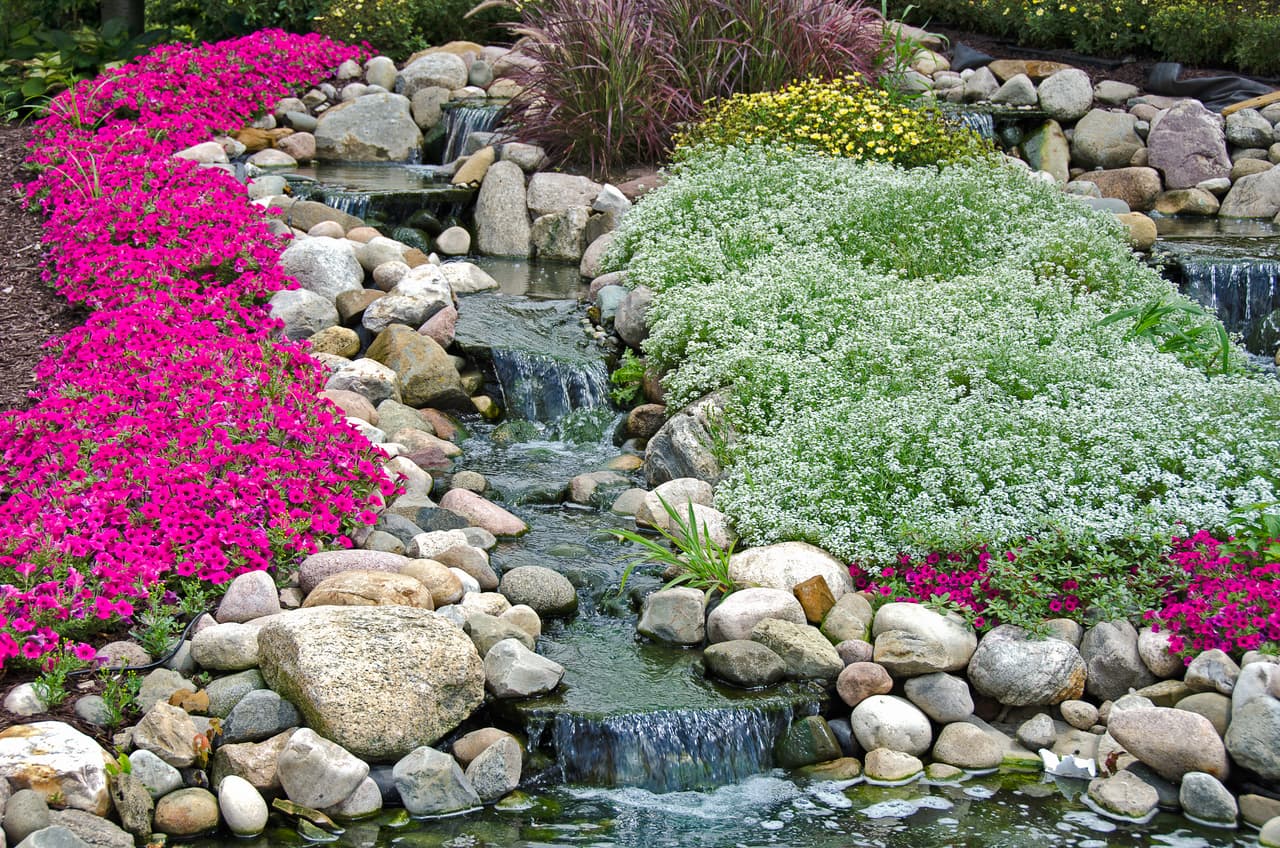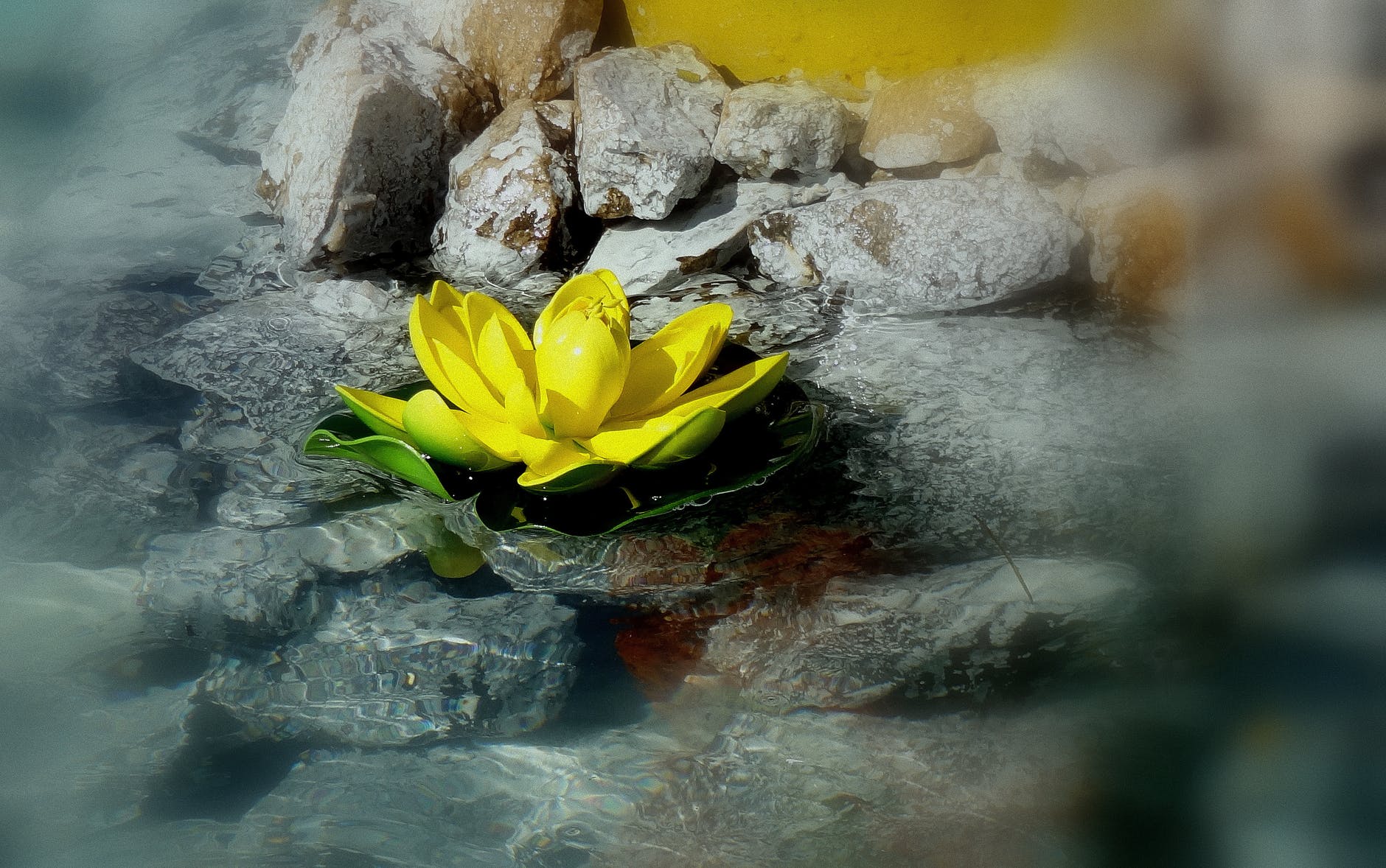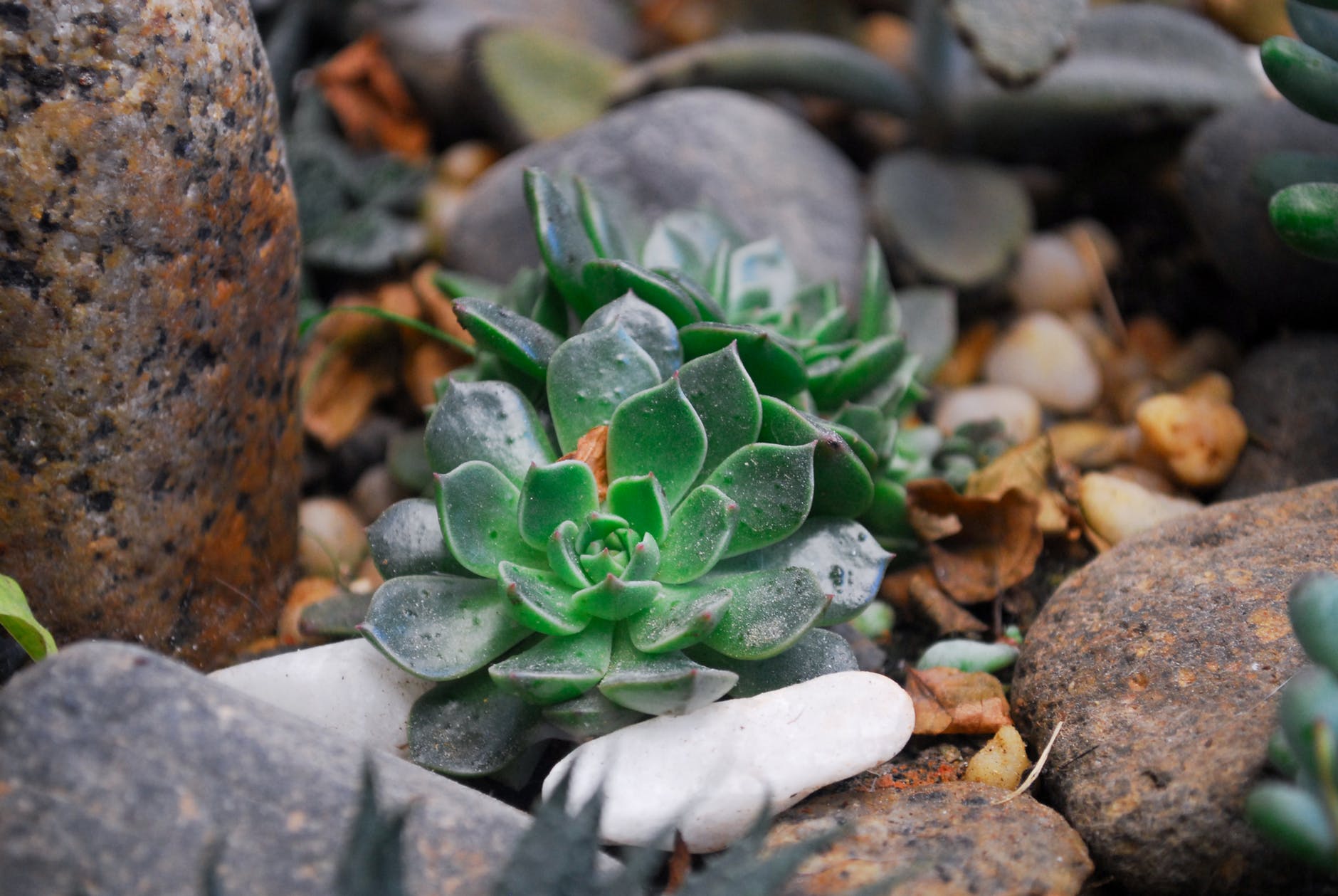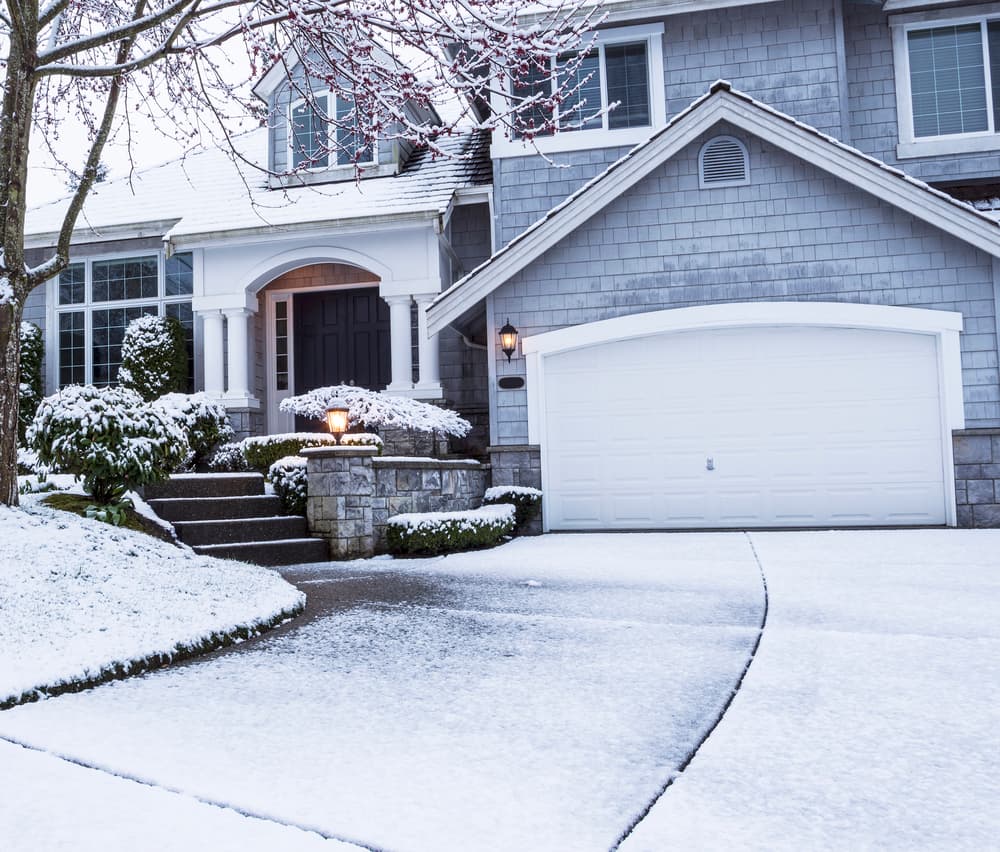
Plenty of visual interest can be created to spruce up the exterior part of a home. In fact, many homeowners place great attention to detail in curb appeal. This includes facade features, maintenance as well as landscaping.
If you’re lucky to have a front or back yard with lots of space, you may be thinking about different features to incorporate. Have you ever thought about the beauty of a rock garden? This eclectic and low-maintenance addition is an excellent option for any home, regardless of taste and style.
Wanting to include a rock garden on your front or back lawn is one thing, but how can you arrange it so it’s contained, appealing and works with your landscape? We’re here to offer some guidance and inspiration for those interested by the realization of this type of project.
Here’s how to build a rock garden
The positives of a rock garden
 source: pexels
source: pexels
Rocks may have the reputation of being dull and lifeless, unable to add colour or excitement to a landscape. But that couldn’t be further from the truth. In fact, a rock garden can do a lot in terms of the visual contrast of a lawn, breaking up and highlighting other natural features such as flowerbeds, plants, and trees. Rocks offer a sense of rhythm and form that flowers and greenery don’t possess.
If you’re living in a place that experiences all four seasons, a garden of this type can provide year-round interest on an otherwise snowy plane. If erosion is a problem on your lawn, this feature can also provide a way to stabilize the soil. Another scenario is that if you’re already dealing with less-than-desirable rocky landscape, framing a rock garden to include or highlight this can be a glowing advantage.
Steps to create a rock garden
1- Gather equipment
No matter the size of the garden you plan to create, here’s what you’ll need to complete this project:
trowel ;
wheelbarrow ;
shovel ;
stones, soil and plants of choice.
2- Choose a site and garden elements
Carefully considering the location of your garden is important. This is definitely a landscaping feature that you won’t want to move after it’s in place. Since it’s such a permanent fixture, consider where it would best be situated.
The elements you plan to incorporate into your garden will have a lot to do with where you end up putting it. Remember, if you’d like to include a water element such as a small fountain or flowing pool, you will need to access electricity. If you’re bringing large rocks onto your site, think about how you can get them in place, such as asking for or hiring assistance. Lastly, we’d suggest you consider the amount of shade your rocks will generate, as this will determine what plant life can live alongside them.
3- Source your rocks
 source: unsplash
source: unsplash
The source of your rocks will depend on a number of factors. These include where you’re living and what types you’d like to work with. Since it’s difficult to envision everything before you’ve seen the rocks themselves, we’d suggest choosing what you’d like to include in the initial stages of this project.
As mentioned, depending on where you live, you’ll have different types of rocks available to you. Not only this, but certain types will be better for certain climates, landscapes and designs. Do you want to work with long, flat rocks? Big boulders? Smooth stones? All of the above? Do some research to better determine the types that are native to your area.
Of course, even if you choose the specific type of rocks you’d like to work with, the ones you end up using will still vary in shape and size. With this in mind, we’d suggest sketching out the arrangement of how you plan to place your rocks. This will be helpful when they do arrive, as you can place them as close as possible to what you’ve drawn.
4- Choose compatible plants
You may not want to work with plants at all, as this could be the reason why you’ve chosen to build a rock garden in the first place. However, accessorizing with greenery and flowers will offer another element of visual interest that could work to further brighten your lawn. Again, the ones you choose to work with will depend on the amount of light available between rocks as well as plants that are native to your region. Here are some options you may consider:
bluebell;
periwinkle;
bleeding hearts;
prickly pear cactus;
creeping phlox;
sedum;
rockcress;
cranesbill.
5- Build your garden
 source: pexels
source: pexels
Before putting down a single rock, map and choose the area you’re going to work within. Clear it of all weeds and debris. If you’re working with a large, or several large, rocks, you’ll want to dig a depression for these to sit.
For stability, experts recommend that a third of the rock is buried. Dig and position larger rocks at the start, filling in with dirt to keep them in place. Following this, you can begin to arrange smaller rocks and other plants you’re including. Remember to leave some extra room and soil for plants that will sit in spaces between them.
Want to get an overview of the cost of your landscaping project? Check out our article Landscaping : the Costs of Various Projects for 2020.
Get 3 renovation quotes for your rock garden project
RenoQuotes.com can help you get quotes for your rock garden project. If you submit your project to us, we’ll put you in contact with top-rated contractors. Fill in the form on the homepage (it only takes a few minutes), and you will get estimates from trusted professionals.
Dial 1-844 828-1588 to speak with one of our customer service representatives.
Looking for something else?
Related articles
The latest industry news, interviews, technologies, and resources.

Editorial Team
•08 Nov 2023
Whether building a custom home or redesigning one that just wasn’t cutting it anymore, taking on a home building project is exciting, but is also a huge job.

Léa Plourde-Archer
•08 Nov 2023
Winters in Canada are long, gruelling and freezing cold. Living in this country, you quickly discover ways to adapt to sub-zero temperatures: you purchase a down-filled, well-built jacket alongside some heavy-duty boots, you dress in layers and make sure little to no skin is exposed.
Editorial Team
•05 Sep 2024
Bathrooms typically have one thing in common: limited floor plans. However, by strategically designing the layout of your bathroom, you may realize that it’s bigger than you originally thought.

Editorial Team
•08 Nov 2023
Picking a material for the bathroom floor can be a unique choice in comparison with other flooring materials around your home. Once you have determined the main aspects of selecting a floor, including the look, feel, durability and cost, you must consider the most important factor: a material that can deal with an excess of humidity and water.

Editorial Team
•10 Feb 2025
More affordable and eco-friendly than traditional homes, tiny houses are transforming real estate by making homeownership more accessible to families with modest incomes. With significantly lower costs than conventional houses, they offer a path to property ownership without a lifetime of debt.